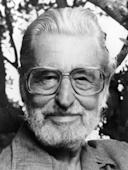.jpg) |
| [Image Source: https://upload.wikimedia.org/wikipedia/commons/b/b3/Snow_White%2C_c1919_%285686351086%29.jpg] |
In October 2014, I posted Lisa Tolliver On Air and Online: DIGITAL READERS: BEWARE! Adobe Digital Editions 4 Spies On Users (And They're Not the Only Ones) - Includes "Who's Reading Whom? (Be afraid. Be very afraid.)", a short horror story.
This next installment in the DIGITAL READERS: BEWARE! saga was prompted by Andrew Rhomberg's article in DBW, "What Code Is Revealing About Readers" (31 July 2015) describing (actually, boasting about and promoting) Jellybooks' code, candy.js, "code embedded inside an ebook to track how users actually read", and announcing his new monthly column, Audience+Insight, that will "detail how acquiring, editing, positioning, promoting and marketing are all being reshaped by data—collected by Jellybooks and a growing list of others—about the ways consumers actually read books".
The article reminds me of the following famed stories:
- The Trojan Horse, the well-known, oft-told legend from the Trojan War about the subterfuge the Greeks used to enter the city of Troy and win the war, nowadays often used in other contexts, as well
- The poisoned apple the wicked stepmother gives Snow White
- The forbidden fruit from the tree of the knowledge of good and evil that Satan gives Eve, and that Eve shares with Adam, causing the couple's banishment from Eden and spiritual death
- Poisoned candy myths
See the excerpt and link to the article below:
"What Code Is Revealing About Readers"
By: | http://www.digitalbookworld.com/2015/what-code-is-revealing-about-readers/
There’s a brave new world in book publishing, and it’s being shaped by and around audience insights. Not only are publishers becoming more adept at using data to work smarter, but code and algorithms are also getting better at gathering information and executing tasks without the help of humans.
At Jellybooks, we recently developed a piece of code called candy.js, which is embedded inside an ebook to track how users actually read. Penguin Random House UK was among our earliest partners in a pilot program of the technology, and the insights we gathered were fascinating. The question now becomes what story this data tells us and what impact it might have.
To explore, I’m kicking off a new monthly column called “Audience+Insight” that will detail how acquiring, editing, positioning, promoting and marketing are all being reshaped by data—collected by Jellybooks and a growing list of others—about the ways consumers actually read books.
-->
###
Who's reading/listening to/watching whom? #2






